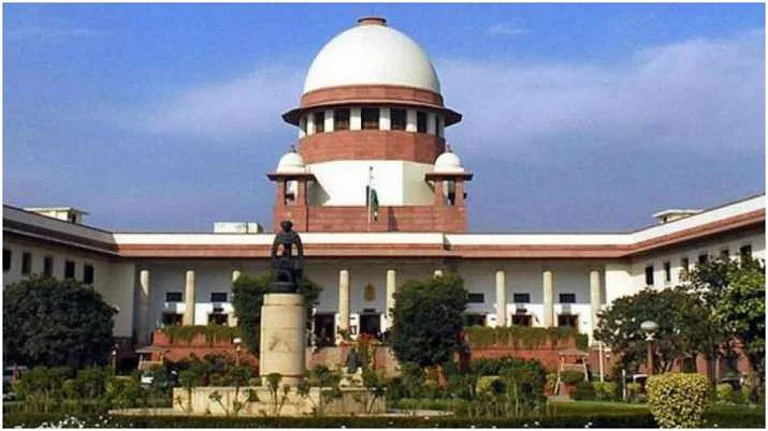
Summary of this article
Supreme Court criticised the Haryana government for cutting 40 fully grown trees to build road access to a newly constructed BJP office in Karnal, calling the act unjustifiable.
The case was brought by Vir Chakra awardee Col. (retd.) Davinder Singh Rajput, who alleged illegal land allotment in a residential zone and violation of green-belt norms.
The court demanded an explanation and remedial plan, warning the state and its agencies of strict action if violations continue.
The Supreme Court pulled up the Haryana government and its urban development body on Wednesday for uprooting forty fully grown trees in order to construct an accessible road to a recently built BJP office in Karnal. The court called this "pathetic" and warned that they would be "taken to task" if they failed to provide a remedial action plan.
A petition filed by a veteran of the 1971 war was being heard by a bench of Justices J B Pardiwala and K V Viswanathan. The petitioner was contesting the high court's May 3 dismissal of his plea against the ruling Bharatiya Janata Party (BJP) in Haryana's arbitrary acquisition of a plot in a residential area and the subsequent construction of an access road for its office by uprooting forty fully-grown trees in a green space.
"It is pathetic that you uprooted fully-grown trees. Why and what happened to these trees? What is your explanation for this? Why can't you get the office of the political party shifted to some other location?" the bench asked Additional Solicitor General Vikramjit Banerjee, who appeared in the matter for the Haryana government.
Banerjee said the required permissions were taken for allotment, and all green norms were followed. He assured the court that trees would be planted in proportion to the number of trees felled.
The bench asked Banerjee who would compensate for the loss of the 40 fully-grown trees. It also asked him to come up with a good explanation, warning that the state and its instrumentalities are bound to be "taken to task".
"We are warning you that all of you will be taken to task for this," the bench told Banerjee and other lawyers appearing for different bodies of the state government.
After hearing from counsel Bhupender Pratap Singh, who represented Col. (retd.) Davinder Singh Rajput, a veteran of the 1971 war, the court issued the order.
Rajput (79), a renowned soldier who received the Vir Chakra for valour, claimed to have been wounded in the conflict. He had bought a 1,000-square-yard plot from the Haryana Shehri Vikas Pradhikaran (HSVP) and later the Haryana Urban Development Authority (HUDA) in Sector 9, Urban Estate, Karnal.
Rajput said he was aggrieved by the arbitrary allotment of the land adjacent to his plot in a residential plotted colony to the ruling political party in the state in complete violation of the provisions of the Haryana Urban Development Act, 1977 and the relevant policies of the Department of Town and Country Planning and the HUDA.
"The petitioner was also aggrieved by the felling of 40 trees in the green belt to make a 10m pathway through the 100m green belt in front of the house of the petitioner. It is pertinent to note that the petitioner had paid 10 per cent preferential-location charges for the green belt facing the plot almost 36 years ago," the plea said.
Singh told the bench that the high court dismissed Rajput's writ petition and upheld the arbitrary actions of the State, violating the legal and fundamental rights of the petitioner.
"The high court did not appreciate the relevant legislative provisions and policies governing revision in layout plans of a residential plotted colony, which mandate institutional/social sites to be located on at least a 24m wide road," he submitted.
The lawyer pointed out that in the case at hand, the irregular-shaped vacant land measuring 1,550 square yards, adjacent to the petitioner's plot, situated on a 9-metre-wide road and which had remained vacant since 1989, was designated as institutional and allotted to the ruling party without following any due process.
On October 15, the top court asked the Haryana government to maintain the status quo as regards the so-called development that has been conducted.
The HSVP chief administrator was summoned by the court and ordered to appear in person with the complete record. It had requested an explanation from the HSVP about the conditions under which more than forty trees were cut down for development, and what was done with those trees.
"If any further development is undertaken from now onwards, we shall take a very strict view of the matter," the court had said.






















